
The PassageWay is an approach to wellness that borrows from the wisdom of the past and combines it with current research about the importance of living a full and mindful lifestyle. Northwest Passage has learned throughout the history of its interventions with youth that people heal through a variety of channels. In Northwest Passage’s over 40 years of development, we have learned that real, sustainable change occurs when our clients connect with their community, explore their identity, develop their passions, appreciate time in nature, attend to their relationships, discover effective recreation opportunities, learn healthy nutritional habits, and move their bodies. While one young man may find solace in fishing, another might yearn for the order therapeutic skills group brings to his life. A young woman might develop meaning through service to her elders, while another throws herself into building her strength and stamina through physical activity. The PassageWay proposes that the journey to building a healthy lifestyle includes the building of skill and insight through therapy intervention, the judicious use of psychotropic medication, and the consistent awareness of the use of these eight therapeutic lifestyle choices:
NATURE
Spending time in nature allows our clients to recenter and provides an opportunity to step back from our fast-paced world. Nature heals.
RECREATION
Recreation is important. Finding something to do that we love, that makes us feel good, is just as important to healing and growth as a therapist’s couch. Action filled with enjoyment.
RELAXATION
Teaching principles and methods of relaxation helps manage distress and provides an opportunity to step back from our fast-paced world. Relaxation promotes mindfulness.
NUTRITION
The fuel we choose for our bodies has a direct impact on our emotional well-being in addition to our physical well-being. Good nutrition feeds the soul.
EXERCISE
A healthy understanding of the role that movement plays in our day to day lives is critical to sustaining positive mental health. Exercise comes in many forms. Healthy bodies, healthy minds.
RELATIONSHIPS
Relationships are the core of our human experience and a reflection of our health. We have relationships with ourselves, with our families and peers and with our communities. Relationships transform and create hope.
SERVICE
Spending time with those in need and giving back to our communities allows our clients to connect with both others and themselves. Service benefits oneself as much as others.
SPIRIT
Contemplation about values and core beliefs allows exploration of what matters most in our lives. Spirituality is an opportunity to self-reflect.
USING EXPERIENTIAL PROGRAMMING
TO ACHIEVE A THERAPEUTIC LIFESTYLE
______
Our talented staff will ensure that your child has access to a number of ways to practice living a therapeutic lifestyle through real-world activities designed to help your child connect with the PassageWay.
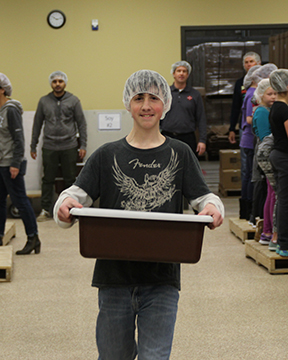
VOLUNTEERING
Service, Relationship, Spirit
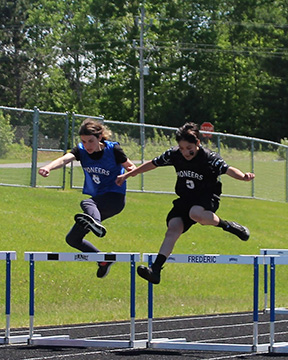
PIONEERS SPORTS
Exercise, Relationships, Nature
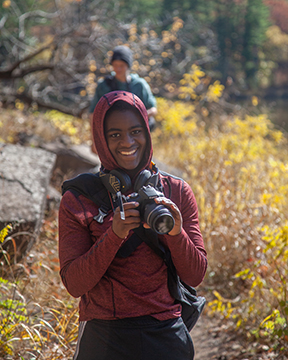
NATURE PHOTOGRAPHY
Nature, Relationships, Spirit
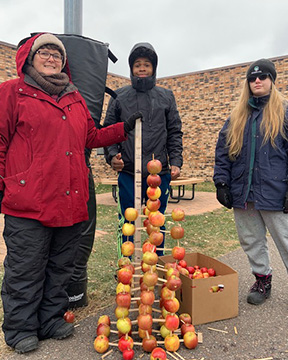
OUTDOOR CLASSROOM DAY
Nature, Exercise, Relationships
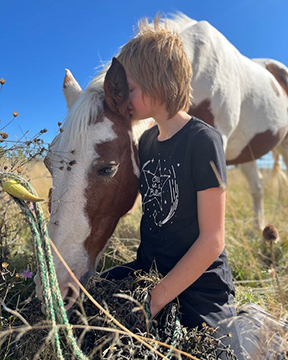
EQUINE THERAPY
Recreation, Relationships, Spirit
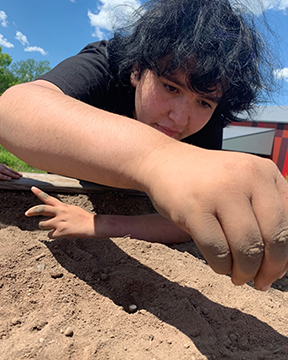
GARDENING
Nutrition, Service, Nature
GROUNDED IN EVIDENCE-BASED APPROACHES
______
The PassageWay articulates the philosophy of Northwest Passage, that the path to mental health in individuals includes not only the conventional interventions of psychiatry and therapy but also a careful look at all aspects of life. An overview of the science supporting the approach of building a therapeutic lifestyle has been published by Roger Walsh in the periodical, American Psychologist in October 2011. In his article, “Lifestyle and Mental Health”, Walsh posits that through the modern age many health professionals have underestimated the impact of lifestyle choices on mental wellness. He categorizes these choices into eight domains including exercise, nutrition, time in nature, relationships, recreation, relaxation, spirituality, and service. An increasing focus on these areas in the scientific literature has contributed greatly to the understanding and expansion of the purposeful use of lifestyle changes in the pursuit of mental health interventions. At Northwest Passage, our review of that literature and pursuit of those practices is articulated in what we call the PassageWay.
“An environment-based education movement–at all levels of education–will help students realize that school isn’t supposed to be a polite form of incarceration, but a portal to the wider world.”
“Lifestyle changes can offer significant therapeutic advantages for patients, therapists, and societies.”
“Health is a large word. It embraces not the body only, but the mind and spirit as well… and not today’s pain or pleasure alone, but the whole being and outlook of a (hu)man.”